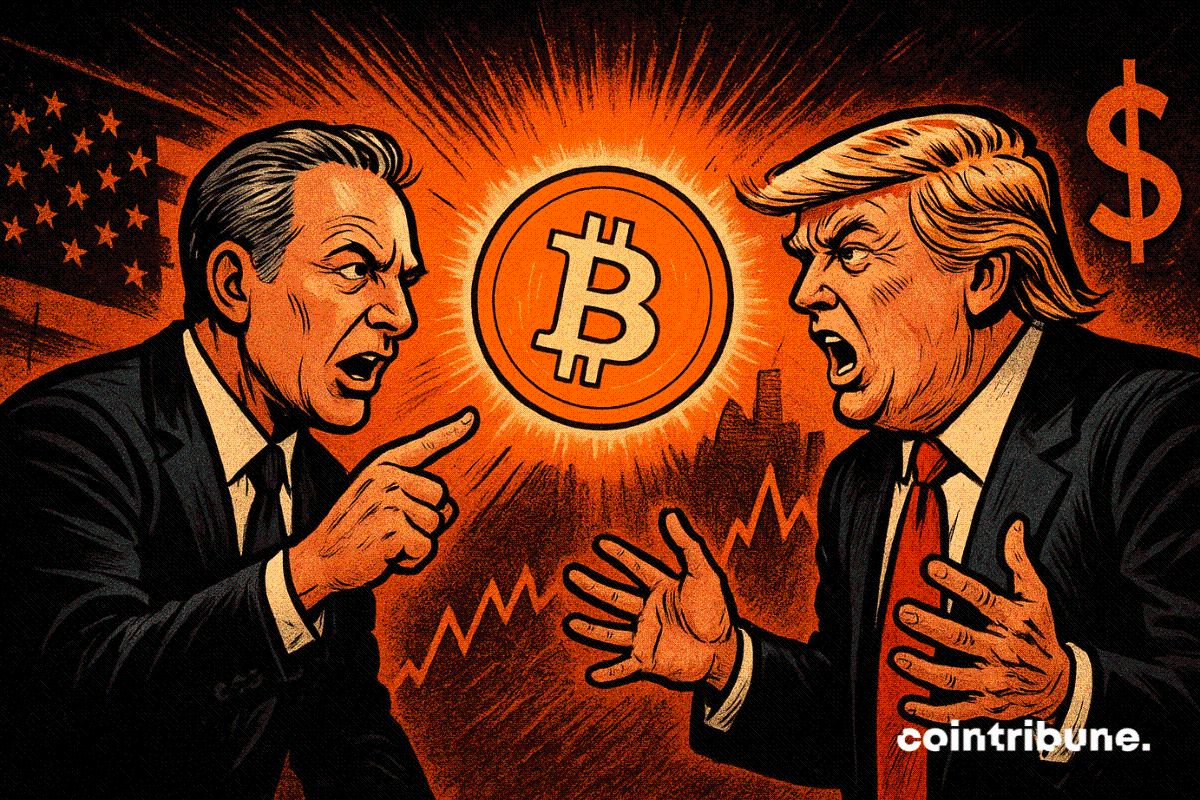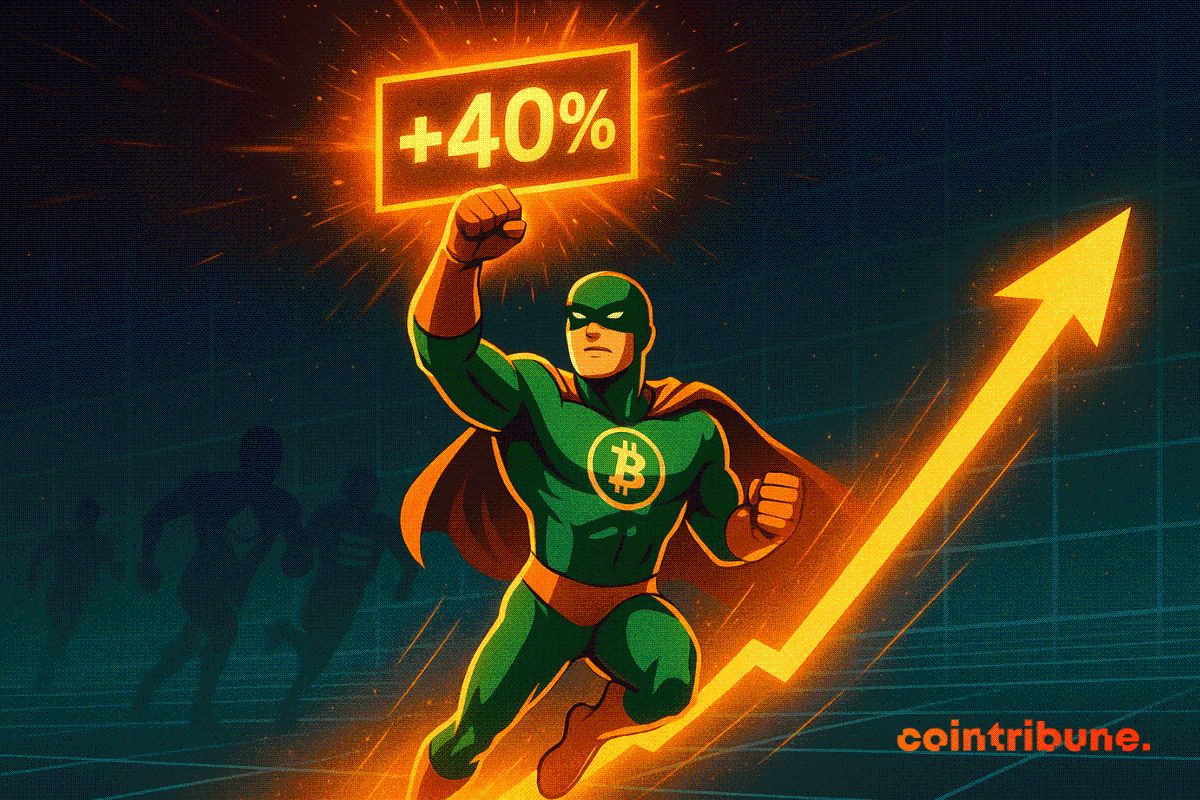Political Risk and Trade Policy Volatility: Trump's Tariff Legal Challenge Undermines Global Supply Chains and Market Confidence
- U.S. appeals court ruled Trump’s IEEPA-justified tariffs illegal, citing constitutional limits on executive tax authority. - Market volatility surged as S&P 500 fell 12.9% in 2025, with investors shifting to gold and fixed-income assets. - Tariffs triggered $71B in costs for U.S. SMEs and accelerated supply chain fragmentation, raising production costs by up to 15%. - Supreme Court’s decision could reshape trade policy, risking 6% GDP decline or unraveling trade agreements with China/Mexico. - Legal unce
The legal battle over President Donald Trump’s emergency tariffs has become a litmus test for the resilience of global trade systems and investor confidence. A recent ruling by the U.S. Court of Appeals for the Federal Circuit declared most of Trump’s tariffs—justified under the International Emergency Economic Powers Act (IEEPA)—illegal, citing constitutional limits on executive authority over taxation [1]. This decision, delayed until October 14 to allow for a Supreme Court appeal, has already triggered market volatility and supply chain reconfigurations, underscoring the growing risks of politically driven trade policy [2].
Legal Uncertainty and Market Volatility
The appeals court’s ruling hinges on a critical constitutional principle: the power to levy tariffs is reserved for Congress, not the executive branch [3]. By invoking IEEPA—a law designed for sanctions and emergency measures—to impose tariffs, the Trump administration overstepped its authority, the court concluded. This legal ambiguity has sent shockwaves through financial markets. The S&P 500, for instance, has fallen 12.9% in 2025 as investors flee equities for safer assets like gold and fixed-income instruments [4]. The uncertainty is compounded by the administration’s refusal to accept the ruling, with Trump vowing to appeal to the Supreme Court and warning of “disaster” if tariffs are revoked [1].
Supply Chain Fragmentation and Economic Costs
Beyond market jitters, Trump’s tariffs are reshaping global supply chains. The removal of the de minimis exemption for low-value international shipments—effective August 29—has imposed an estimated $71 billion in additional costs on U.S. small and medium-sized businesses [2]. Meanwhile, multinational corporations are accelerating shifts toward localized manufacturing and regional trade agreements to mitigate exposure. China and Brazil, for example, have deepened ties to the CPTPP, a move that could fragment global value chains and raise production costs by up to 15% for industries reliant on cross-border trade [4].
Legal scholars warn that this fragmentation risks eroding trust in multilateral trade systems. Countries are increasingly prioritizing bilateral or regional agreements to circumvent U.S. policies, a trend that could destabilize the rules-based global trade order [5]. For investors, this means higher operational costs, longer lead times, and greater exposure to geopolitical shifts.
The Supreme Court’s Role and Long-Term Implications
The Supreme Court’s upcoming decision will determine whether Trump’s tariffs survive or collapse under constitutional scrutiny. If the court upholds the lower court’s ruling, it could force a congressional overhaul of trade policy, potentially leading to higher, legally sanctioned tariffs. Conversely, a reversal would embolden future administrations to exploit IEEPA for similar measures, deepening uncertainty [3].
Economists project stark outcomes either way. If tariffs remain, the U.S. could see a 6% long-term GDP decline and a $22,000 lifetime income loss for middle-class households due to retaliatory measures and inflationary pressures [4]. If revoked, trade negotiations with key partners like China and Mexico could unravel, triggering a new wave of protectionist policies.
Conclusion: Navigating a New Era of Political Risk
For investors, the Trump tariff saga highlights the inescapable link between political risk and economic stability. The ruling underscores that executive overreach in trade policy is not only legally contentious but economically destabilizing. As the Supreme Court weighs in, asset allocators must prepare for a world where supply chains are more fragmented, markets more volatile, and geopolitical tensions more intertwined with investment outcomes.
**Source:[1] What happens next after Trump tariffs ruled illegal? [2] End of de minimis shipping could be biggest Trump tariff ... [3] The Supreme Court and Trump's tariffs: an explainer [4] The Legal and Market Implications of Trump's Tariff Rejection [5] Are Trump's tariffs a path to a new world trade order]
Disclaimer: The content of this article solely reflects the author's opinion and does not represent the platform in any capacity. This article is not intended to serve as a reference for making investment decisions.
You may also like
Witness the Dynamic Shifts in Bitcoin and Altcoin ETFs
In Brief Bitcoin and altcoin ETFs witness dynamic shifts in inflows and outflows. XRP and Solana ETFs attract notable investor attention and activity. Institutions explore diversified crypto ETFs for strategic risk management.

Peter Schiff Clashes With President Trump as Economic and Crypto Debates Intensify

Bitcoin Cash Jumps 40% and Establishes Itself as the Best-Performing L1 Blockchain of the Year

Bitcoin Price Plummets: Key Reasons Behind the Sudden Drop Below $88,000